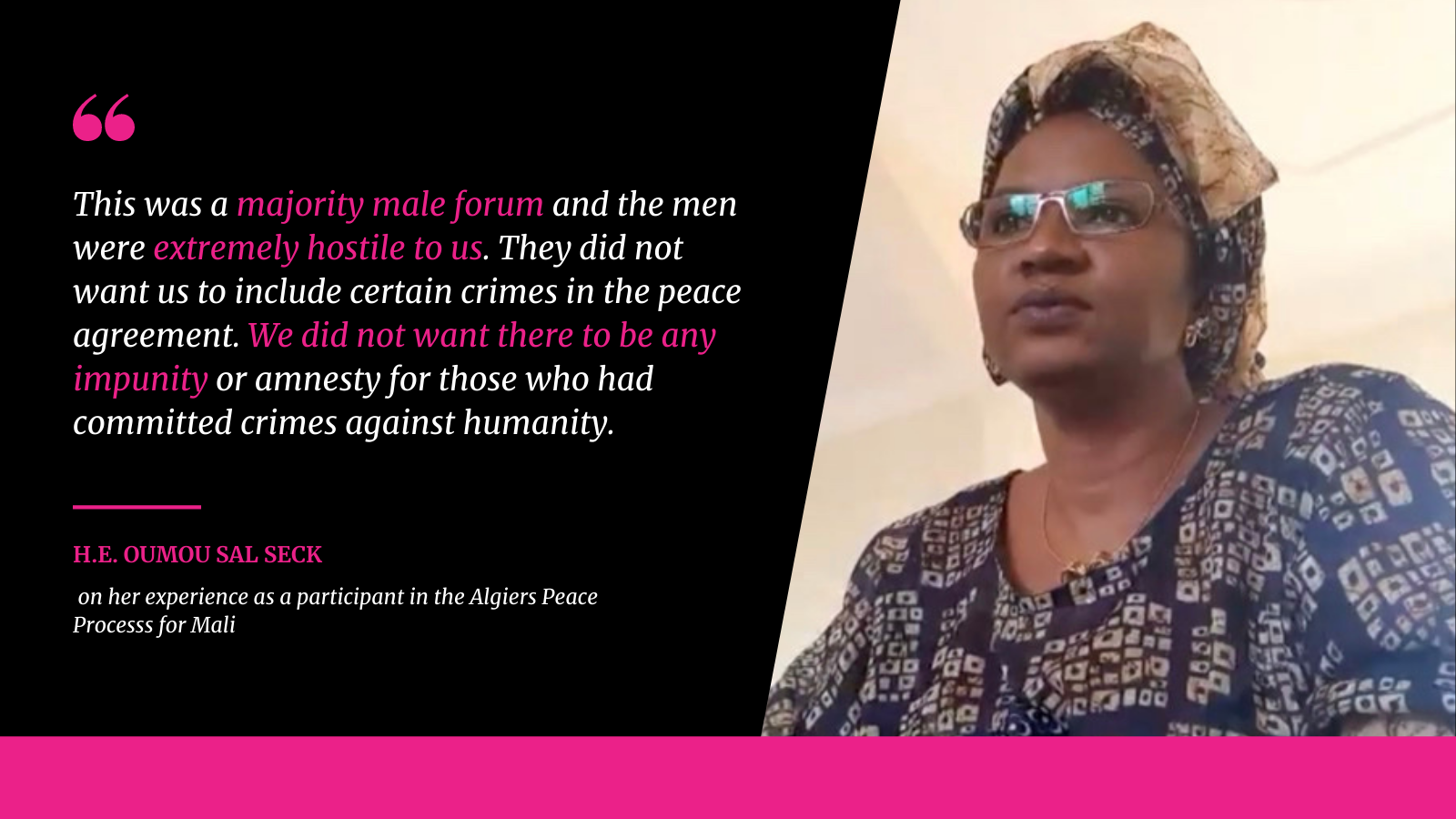Report: Women, Peace & Security in Action
Women’s meaningful participation in peace processes is one of the pillars of the women, peace and security agenda, but has been the practical experience of women involved in such negotiations?
With our friends at Fundación Mujeres por África it was out pleasure to host a roundtable with women from Africa and Latin America to discuss their experience and the lessons they had learned from being part of vital peace and political processes.
Participants at the session included:
Gloria Scott, who presided over Liberia’s Constitutional Review Committee, discussed her experience of involving women in that process, and the challenges she came up against.
Samia Al Nagar worked on the development of Sudan’s National Action Plan for the implementation of UNSCR 1325, she spoke about what she sees as the shortcomings of the agreed plan.
Ambassador Oumou Sall Seck was a participant in the Algiers talks that secured a peace agreement in North Mali. She discussed the resistance the women faced in that process.
Ishraga Ahmed Khamis leads humanitarian work in the conflict-affected region of Blue Nile and South Kordofan in Sudan. She discussed her experiences of the Juba peace process, and the important successes that women achieved.
Mercedes Segura leads the Fundación Vida Digna in Colombia. She spoke about the implementation of the country’s peace deal, and its practical impact for women - and in particular women working in agriculture.
Dr Eithar Khalil Ibrahim discussed the things she had learned as a participant in the Juba Peace Agreement process.
Zahra’ Langhi joined the meeting directly from the Libya Political Dialogue Forum, and highlighted the importance of dissent within such processes.

